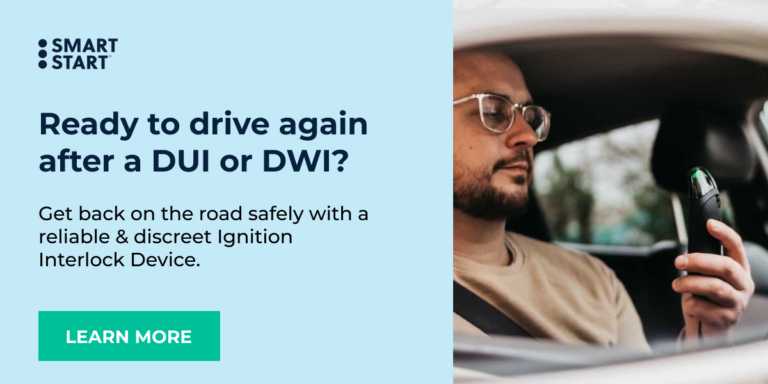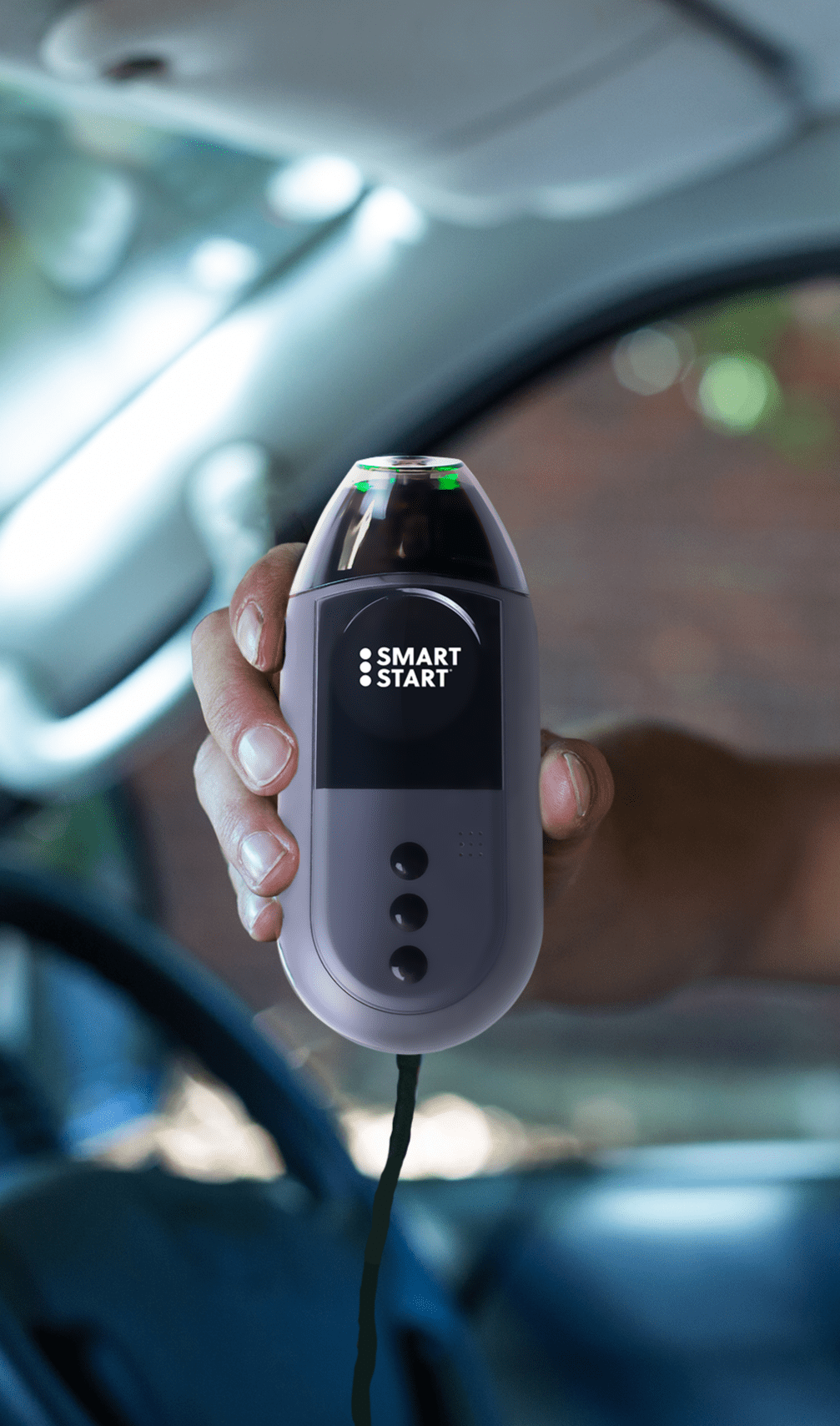DWI vs. DUI in Virginia: Are They The Same?
Virginia’s drunk driving laws are some of the toughest in the U.S. In 2022 alone, 14,247 Virginia residents were charged with a DUI.1 If you’ve been charged with a DUI or a DWI conviction in Virginia, you might be confused about the difference between the two charges, as well as the penalties of the one you’re about to face.
Some states use the terms DWI and DUI interchangeably, while others consider them completely different charges. Regardless, there are automatic DUI penalties, depending on whether it’s a first or repeat offense and a variety of other factors.
If you’re wondering about the difference between DWI vs. DUI in Virginia and the penalties you might face for each, read on for a breakdown of everything you need to know.
What are the Differences Between a DUI and a DWI in Virginia?
The term DUI refers to “Driving Under the Influence,” while DWI refers to “Driving While Intoxicated.” Since these acronyms are often used interchangeably (but might carry different definitions and consequences depending on the DUI or DWI laws of your state), it can be difficult to keep track of which is which.
Some states might differentiate between DUI and DWI based on whether the driver is of legal age, the driver’s blood alcohol content (BAC), or which substance was used. Other states only use one term or use the two terms interchangeably.2
In Virginia in particular, the terms DUI and DWI are used interchangeably.
While the abbreviated term “DUI” is typically used in Virginia law, three DUI convictions within a ten-year period lead to the conviction of a “DWI felony” (whereas the first and second DUI charges are misdemeanors), and the spelled-out term used is “driving while intoxicated.”3
However, the terms themselves (DUI and DWI) carry the same meaning in Virginia (i.e. if you’re charged with a first-offense Virginia DWI misdemeanor, it’s no different from a first-offense DUI misdemeanor).4 While your DUI or DWI might have different connotations if you were arrested outside state lines, in Virginia, the two charges are synonymous.
Penalties and Consequences
In Virginia, you’re legally considered “driving under the influence” or “operating under the influence” if you’re operating a motor vehicle, boat, or watercraft with a blood alcohol content (BAC) of 0.08% or higher.
Any DUI offense will be reported to the Central Criminal Records Exchange, meaning you might end up with a criminal record because of any DUI arrest, even a DUI in Virginia first-offense misdemeanor.
There’s a chance you might also be legally considered “under the influence” if you’re under the influence of any drug, or if a smaller amount of alcohol impairs you. Because of “buzzed driving” laws, even a BAC of 0.02% is considered an impairment by the National Highway Traffic Safety Administration,5 and in Virginia, it’s also illegal to drive with a DUI suspended or restricted license if your BAC is 0.02% or above.
It’s also important to note that you can even be charged with a DUI or DWI if you have an open container of alcohol inside the passenger area of your car.
Below are the DUI penalties you might face in Virginia, depending on your unique situation and how many times you’ve been charged before.
Consequences of Actions & Circumstances on the Scene
If you’re involved in a motor vehicle accident and a law enforcement officer has probable cause, you can be arrested anywhere, without a warrant, within three hours of the incident.
If you refuse a breath or blood test in Virginia, your license will automatically be revoked for one year. A second refusal is considered a misdemeanor and results in a three-year license suspension. While you may petition the court for a restricted driver’s license thirty days after a first refusal, you may not after a secondary refusal or any subsequent refusals.
If you do submit to a breath or blood test, it’s important to understand the implications of your results3:
- If your BAC is between 0.15% and 0.20% at the time of your arrest, you’ll serve a minimum of five days in jail (a second offense within ten years equates to ten days in jail).
- A BAC of 0.20% or higher means you’ll serve a ten-day jail term (a second offense within ten years equates to a 20-day jail term).
- If you’re under 21 and your BAC is between 0.02% and 0.08%, your license will be suspended for one year, you’ll pay a minimum fine of $500, and you’ll be required to complete at least 50 hours of community service. (Even if you are of legal age, there’s a chance you might be charged with a DUI if your BAC is between 0.02% and 0.08%.)
- If you’re under 21 and drive under the influence of drugs or with a BAC of 0.08% or higher, you’ll be subject to the same penalties as someone of legal age.
- Driving under the influence while transporting a minor (17 or under) results in a mandatory five-day jail term and possible fine. A second offense will result in an 80-hour community service requirement.
Additionally, if you’re caught driving after license suspension for an alcohol-related offense, your vehicle will be immediately impounded or immobilized.
DUI or DWI First Offense Consequences
Your first offense DUI or DWI offense in Virginia will result in3:
- A fine of at least $250
- Driver’s license revocation for one year
- Required attendance at an Alcohol Safety Action Program
- Required installment of an Ignition Interlock Device (a breathalyzer installed in your car that prevents it from starting if you’ve consumed alcohol)
A first-offense DUI charge is considered a misdemeanor in Virginia.
DUI or DWI Second Offense Consequences
Your second DUI or DWI offense in Virginia will result in3:
- A fine of at least $500
- Driver’s license revocation for three years
- A possible jail term of up to one year
A second offense DUI is considered a misdemeanor in Virginia. A second offense within ten years of your first will also result in a mandatory jail term of at least ten days. A second offense within five years carries a mandatory jail term of at least twenty days.
DUI or DWI Third Offense (Felony) Consequences
Is a DUI a felony in Virginia? Your third DUI offense in Virginia is considered a Class 6 felony, and will result in3:
- A fine of at least $1,000
- Indefinite driver’s license revocation
- Prosecution as a Class 6 felony
Three DUI convictions within ten years means a jail term of at least 90 days. You’ll also be forced to forfeit your vehicle if you are its sole owner. If your license was already revoked for a previous DUI charge, your new license revocation period will run consecutively after the initial period.
A third DUI offense in five years means a minimum six-month jail term, while a fourth or subsequent offense will mean a jail term of at least one year.
A third or subsequent DUI charge within five years means you will not be granted bail while waiting for trial.
What to Do If You’re Charged with a DWI or DUI
If you’re charged with a DWI or DUI in Virginia, it’s best to find an attorney as soon as possible to prepare for your trial properly. If you served a jail term, you must search for a lawyer immediately upon your release. You may also need to request a hearing.
The next step will be to make preparations to face your penalties. This might include:
- Getting funds together to pay a fine
- Making alternative arrangements for transportation without your license and/or car
You’ll also need to purchase an Ignition Interlock Device (IID, car breathalyzer) and have it installed.
At this time, you can also make arrangements to attend your required Alcohol Safety Action Program and/or complete required community service hours.
You may petition the court for a restricted license within thirty days of a first-offense breath or blood test refusal charge.
When you read up on Virginia law and prepare yourself to face mandatory consequences, you can stay on top of the process and work towards returning to life as normal more quickly. Empower yourself by acting fast and implementing changes to prevent future charges.
Get Back to Driving Quickly and Conveniently with Smart Start
If you’re facing a DUI or DWI charge in Virginia, your Ignition Interlock Device (IID) requirement shouldn’t be a hassle. Smart Start’s easy-to-install, affordable IIDs carry no hidden fees or locked-in contracts. They can also be installed at one of our thousands of conveniently located service centers, and we even offer 24/7 support.
Plus, when you sign up for bi-weekly or monthly auto-payments, you’ll receive $5 off your monthly IID lease payment.
About the size of a smartphone, Smart Start IIDs’ long cords let you move the device freely around the driver’s seat area. Smart Start’s newest FLEXTM Interlock Device’s sleek design is even more discreet and features a simple three-button interface.
If you’re searching for an Ignition Interlock in Virginia, Smart Start has you covered.
Sources:
- Virginia Department of Motor Vehicles. Drinking and Driving. https://www.dmv.virginia.gov/safety/programs/drinking/drinking-driving
- Forbes. DUI Vs. DWI: What’s the Difference? https://www.forbes.com/advisor/legal/dui/dui-vs-dwi/
- Virginia Department of Motor Vehicles. Virginia is TOUGH on drunk and drugged drivers. https://www.dmv.virginia.gov/sites/default/files/forms/dmv168.pdf
- Forbes. Virginia DUI Laws (2023 Guide). https://www.forbes.com/advisor/legal/dui/virginia-dui-laws/
- NHTSA. Buzzed Driving is Drunk Driving. https://www.nhtsa.gov/campaign/buzzed-driving
Schedule an Installation
Get a quick and easy IID installation with Smart Start! Get started today!
¡Obtenga una instalación rápida y fácil de IID con Smart Start! ¡Empieza hoy mismo!
"* (required)" indicates required fields
Disclaimer
Meet the expert
Power Digital








